
Between July and October 2013, M23 rebels began to lose ground to the Congolese army for the first time since their rebellion began in May 2012.
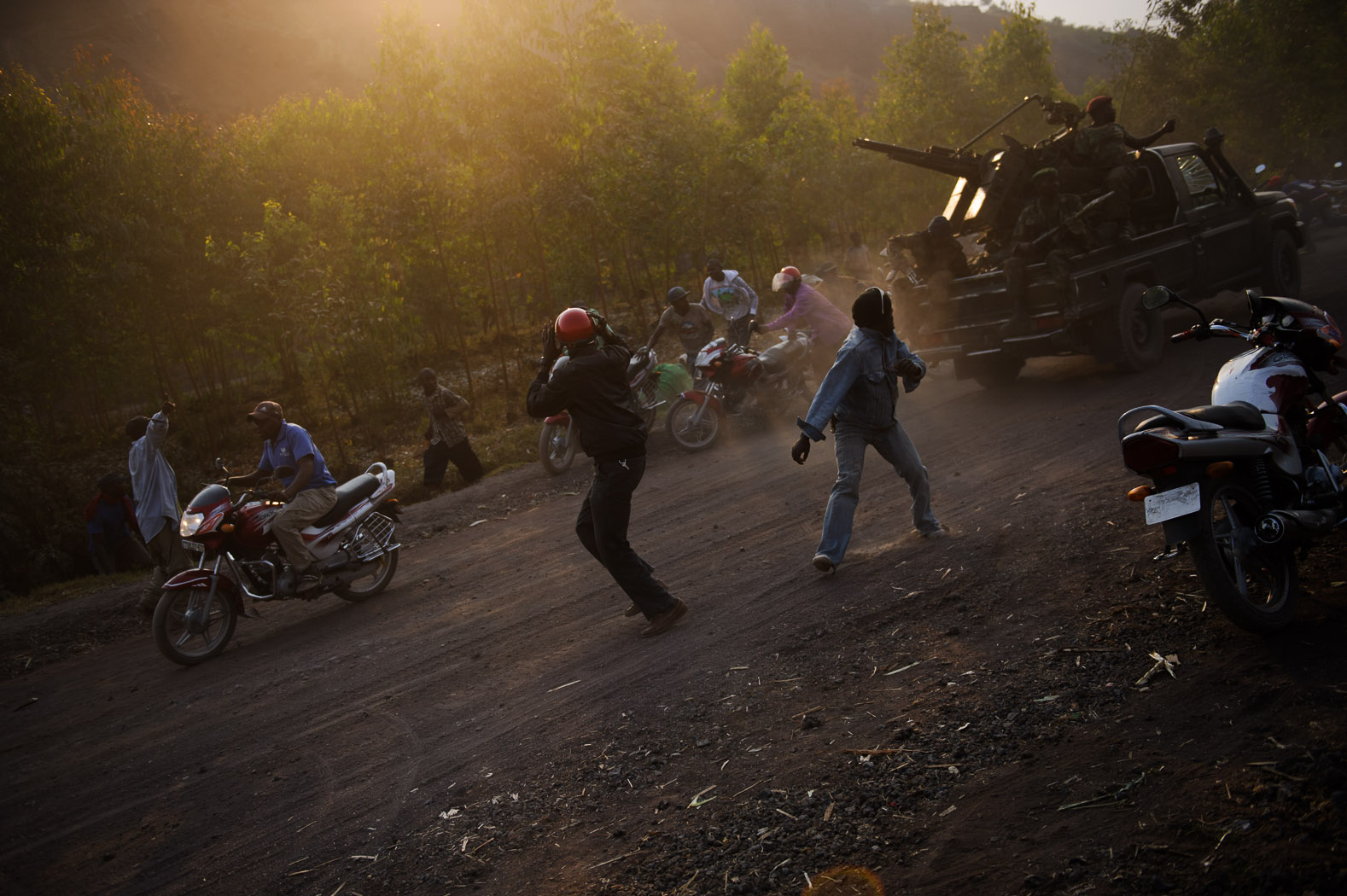
A change in army battalions, comprising commando groups brought in from across the country, had a significant impact on the conflict.

Intense fighting on the outskirts of Goma in July 2013 caused thousands to flee. For many people, this would not be their first displacement.
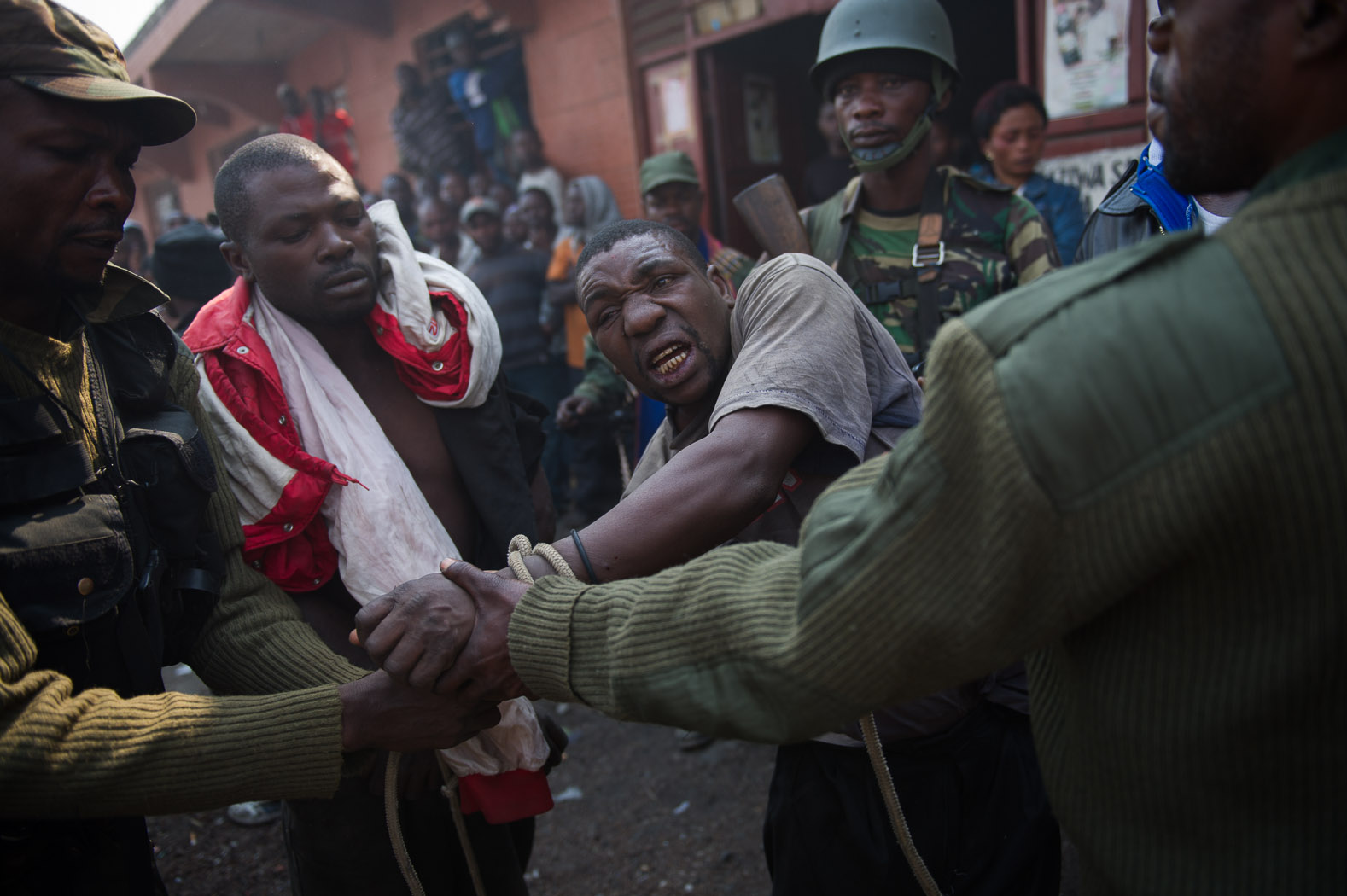
Civilian populations grew increasingly confident in denouncing the rebels. Here, a men accused of being M23 spies are taken away by Congolese army soldiers; if not for their intervention, the local population would likely have lynched the men.

A captured M23 combatant is treated in the village of Rusayo by Congolese army troops. The man claims he was forced to fight by the rebels.

Heavy shelling around Kanyarucinya, formally the site of a spontaneous camp for displaced persons, caused thousands to flee. After several days of fighting, the Congolese army advanced a few kilometres.

Lulu Castafas, a coffin trader, says he has seen an increase in sales since the outbreak of fighting. He says army soldiers come to buy en-masse following the fighting.

Animosity against the United Nations grew in Goma, with civilians demonstrating against what they considered the limiting impact of peacekeepers. A local army commander managed to pacify them.

By October, the Congolese army made huge advances against the rebels, pushing them from Kibumba and Rutshuru up towards their final bastion of Bunagana, a border town with Uganda.
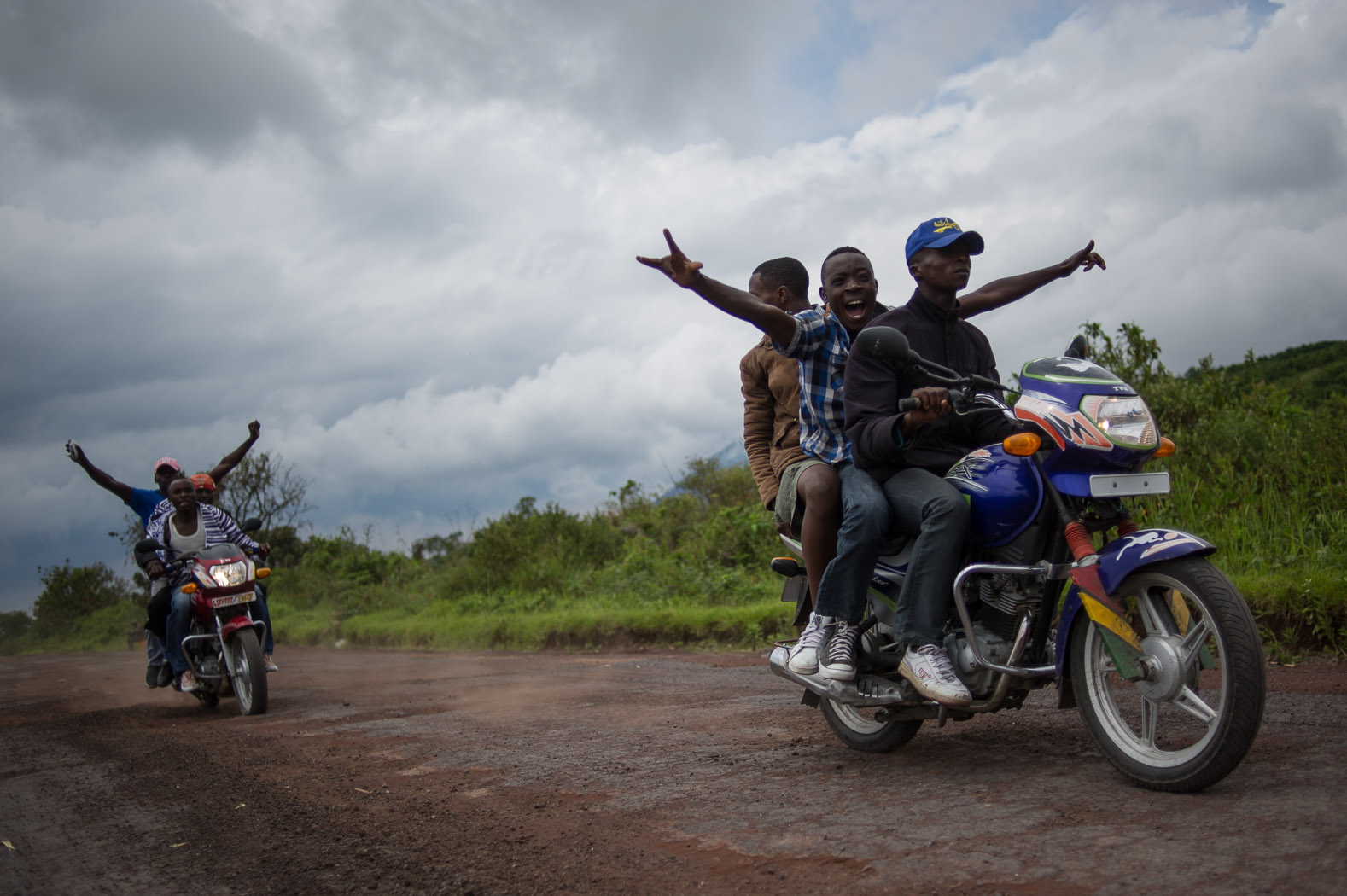
News of the gains made by the army spread quickly, with civilians celebrating the rebels' losses.

Rutshuru and Kiwanja, major towns formally controlled by the rebels were liberated on October 27, 2013. The following day, the governor of North Kivu province, Julien Paluku, and the UN representative in Congo, Martin Kobler, traveled to Kiwanja and Rutshuru to reassure civilians.
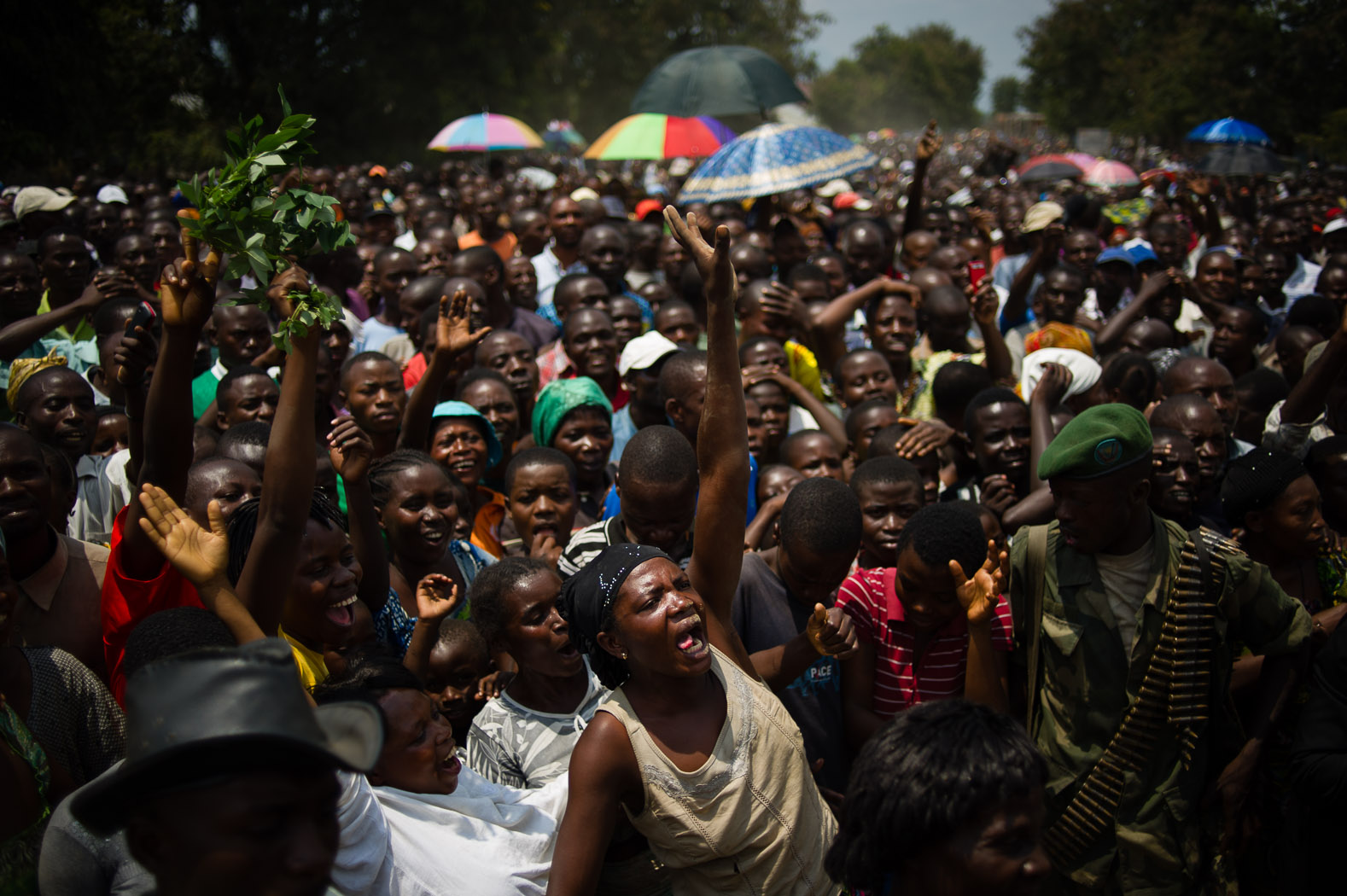
Thousands of people came out to greet the government representatives, celebrating the end of over a year's control by rebel forces.

During the fight for Kiwanja, a Tanzanian peacekeeper was killed in combat. Peacekeepers held a commemorative service for him.

The army recaptured the Rumangabo military academy, a major base for the rebels and depot for many tonnes of armaments.

A boy fishes at a small lake on the Goma - Rutshuru road, the day after rebels pulled back and left the territory for the first time in over a year.
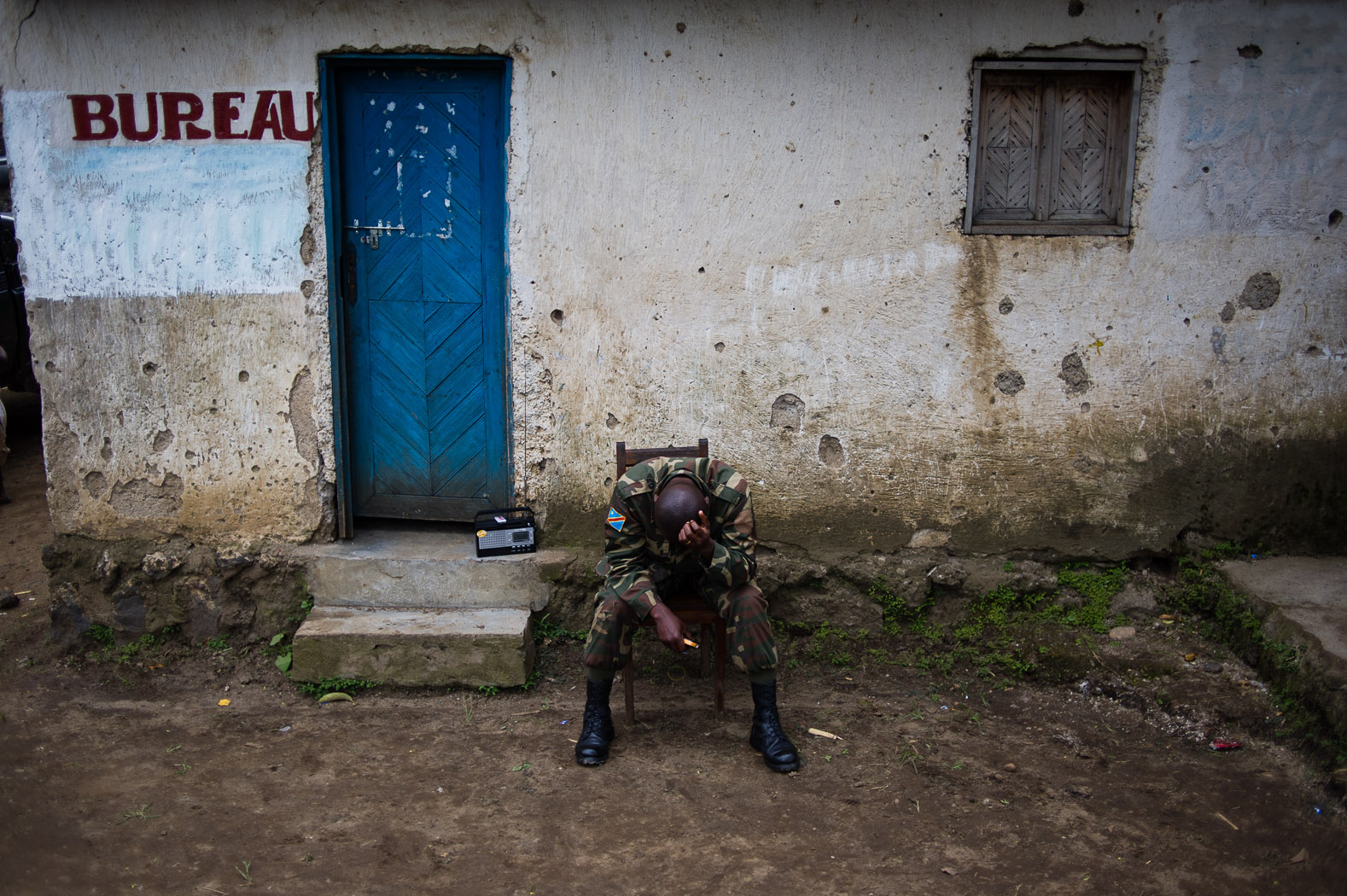
A Congolese army officer rests at a village in territory recently liberated from the rebels.

Congolese army soldiers rearm a .50 calibre machine gun on the outskirts of Bunagana, the last bastion of the rebels.
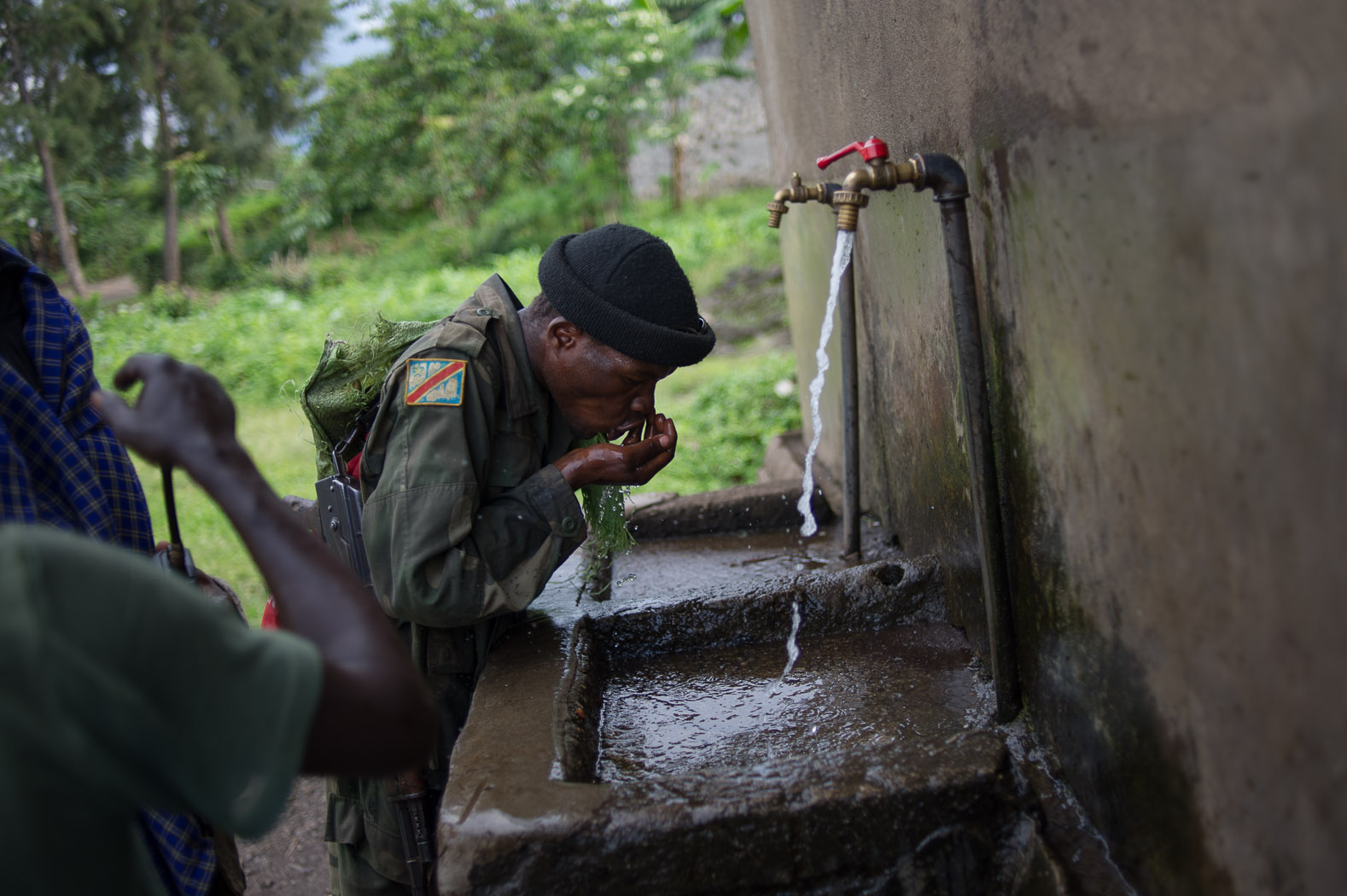
Congolese army soldiers drink water on the long walk up to Bunagana as they deploy to retake the town.

Following the fall of Bunagana, army officers convened at the border point, the furthest edge of the town. Bunagana was a major economic asset to the rebels.

A Congolese lady who had fled over the border to Uganda during fighting, arrives back in the town just after the rebels had fled Bunagana. Rebels had held the town for fifteen months.

Chinese-trained Congolese commandos celebrate the recapture of Bunagana with martial arts. The town was the last bastion of M23.
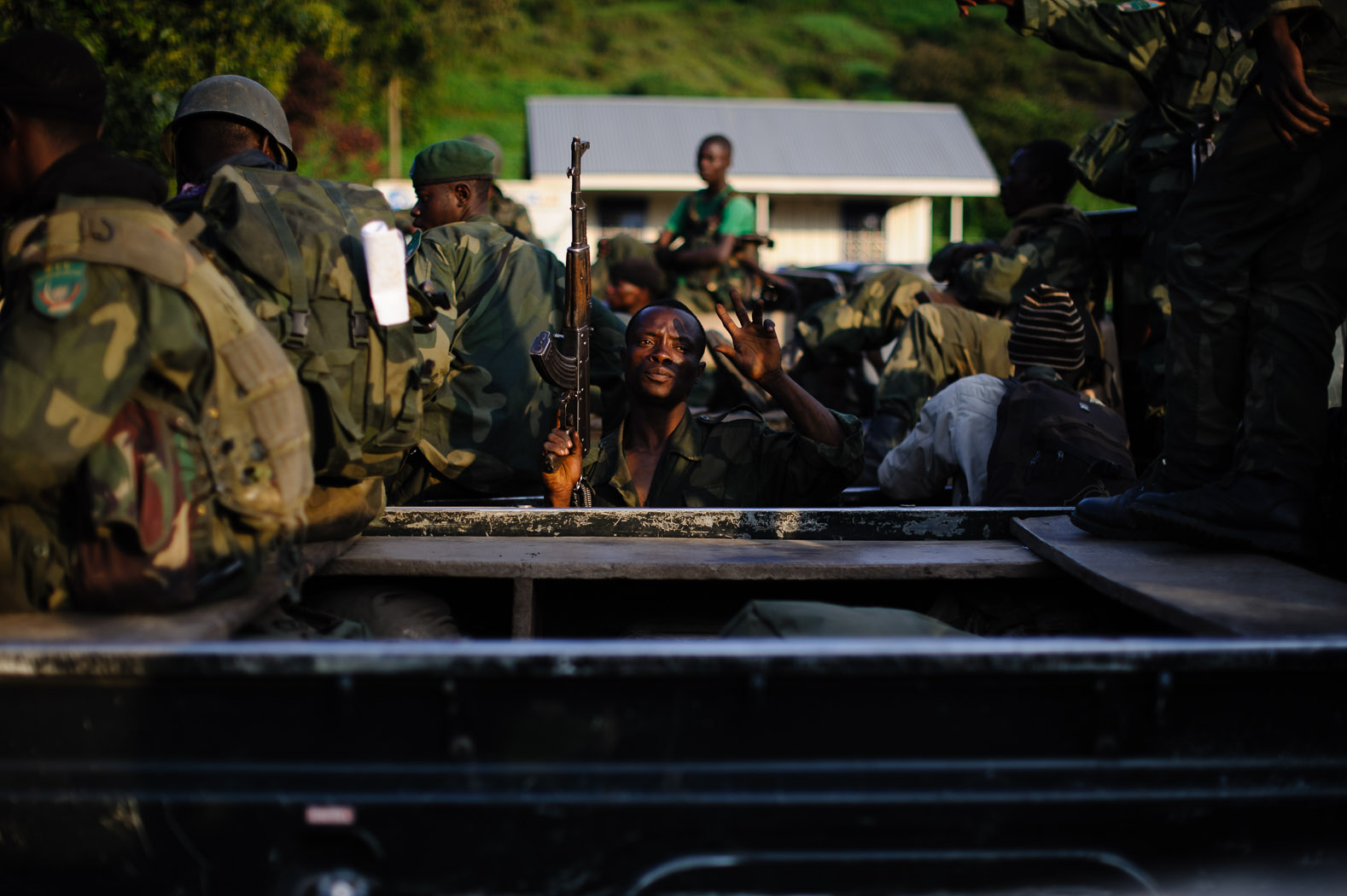
Hundreds of troops flooded into the town to secure it, and to fight the remaining rebels who had fled to surrounding hillsides.

Congolese children play on a destroyed tank used by M23 forces in Kibumba. Children here have grown up with conflict, and this marks an end of just one of myriad armed groups operating in the region.

An Egyptian peacekeeper stands at a base on Mont Goma. The UN is taking a more active role in ousting rebel groups in the region, but many do not operate as regular armies, such as M23. Eastern Congo's future is far from stable.
























